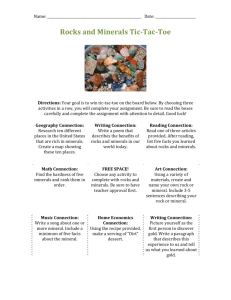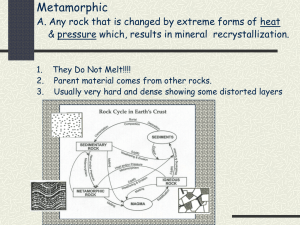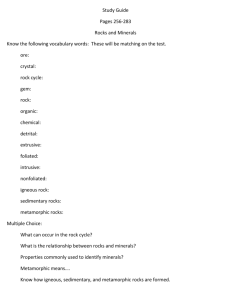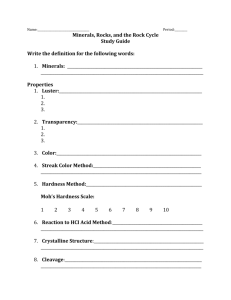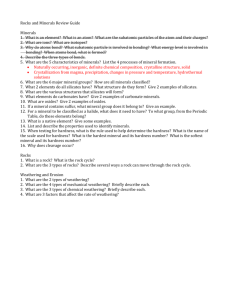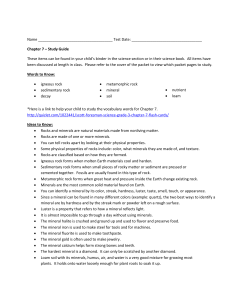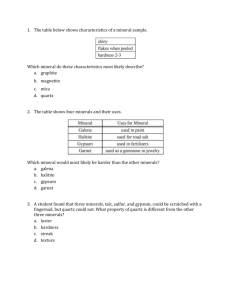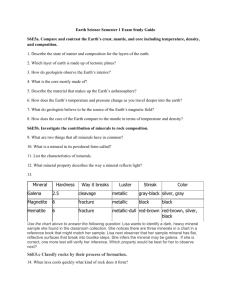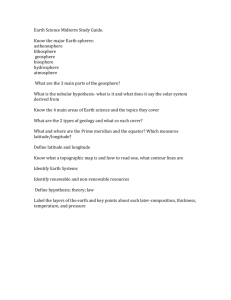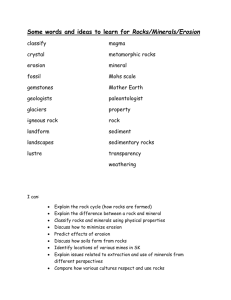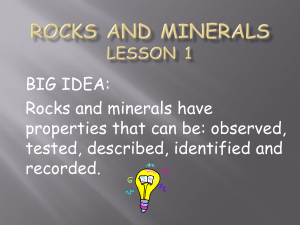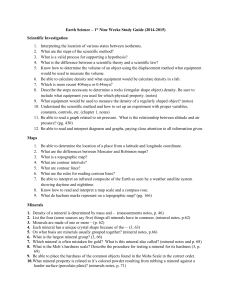Study Guide Unit 3 Rocks Minerals
advertisement
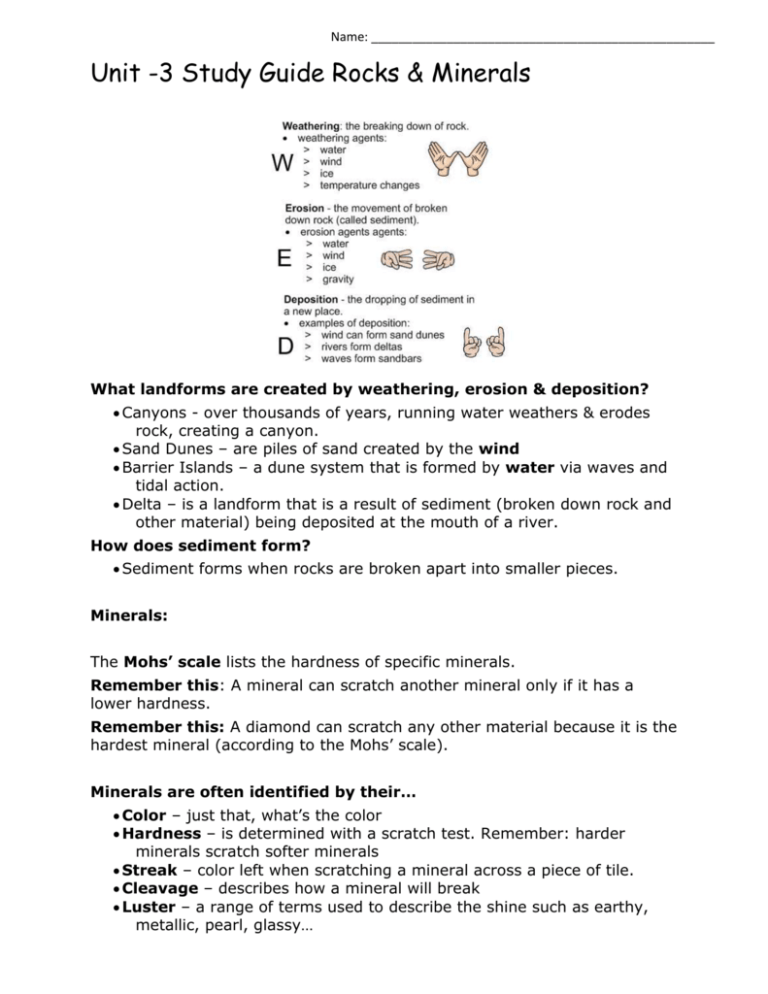
Name: __________________________________________________ Unit -3 Study Guide Rocks & Minerals What landforms are created by weathering, erosion & deposition? Canyons - over thousands of years, running water weathers & erodes rock, creating a canyon. Sand Dunes – are piles of sand created by the wind Barrier Islands – a dune system that is formed by water via waves and tidal action. Delta – is a landform that is a result of sediment (broken down rock and other material) being deposited at the mouth of a river. How does sediment form? Sediment forms when rocks are broken apart into smaller pieces. Minerals: The Mohs’ scale lists the hardness of specific minerals. Remember this: A mineral can scratch another mineral only if it has a lower hardness. Remember this: A diamond can scratch any other material because it is the hardest mineral (according to the Mohs’ scale). Minerals are often identified by their… Color – just that, what’s the color Hardness – is determined with a scratch test. Remember: harder minerals scratch softer minerals Streak – color left when scratching a mineral across a piece of tile. Cleavage – describes how a mineral will break Luster – a range of terms used to describe the shine such as earthy, metallic, pearl, glassy… Properties of Minerals: Streak – the process of rubbing a mineral across a tile to record the color of the mark that is left on the tile. Halite – a type of mineral that forms when a large pool of seawater slowly evaporates. Schist – a coarse grained metamorphic rock containing crystals of the minerals that make up the rock. Pumice – is a extremely porous igneous rock that forms during explosive volcanic eruptions. It floats because it has lots of air-filled chambers. Copper – a metal that can be mined from rocks Coal – a mineral of fossilized carbon The Rock Cycle Resources: Igneous Sedimentary Metamorphic Metamorphic rock melts and becomes magma. Magma erupts from volcanoes and cools to become igneous rock. Sediment from other types of rocks are pressed or cemented together to create layered rocks called sedimentary rocks Properties: Properties: Formed other types of rocks are buried deep beneath the ground and undergo tremendous heat and pressure until they form metamorphic rock Unique colors and crystal Layers Contains fossils Renewable Water Wind Sun/Solar Timber Biomass Geothermal heat Properties: Contains lines of mineral grains Non-Renewable Silica – an important resource found in Florida used to make solar panels. Fossil Fuels- coal, gas, oil Minerals Metal ores
